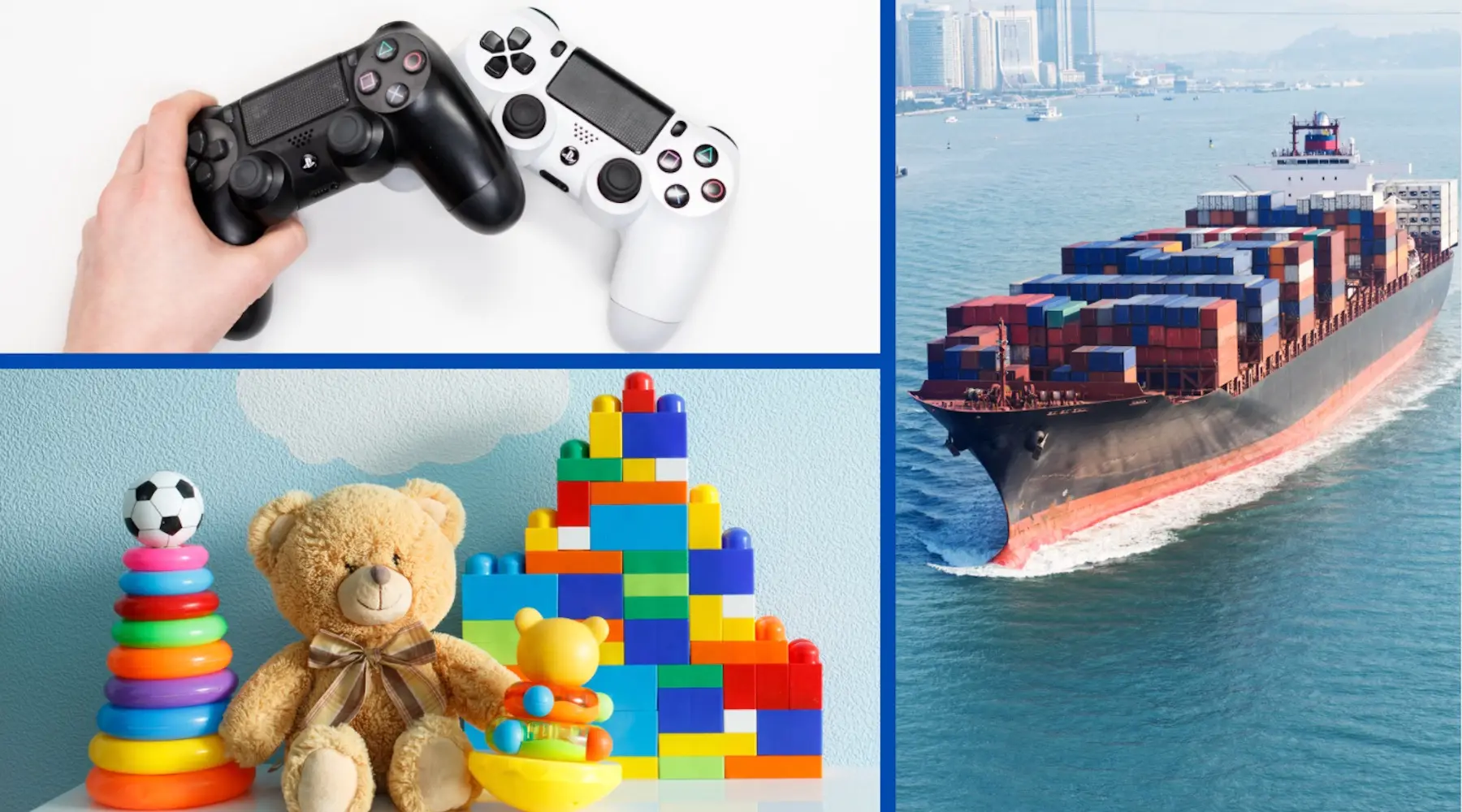Why you’ll pay more for Christmas this year

Everything from your Christmas crackers to the toys under the festive tree could cost you more this Christmas.
If you've been watching the news recently, you may have heard about a shipping crisis, with companies telling you to buy now for Christmas to avoid missing out.
While this may sound like a sales pitch, it is a real issue.
With the holiday season getting closer – and my son's birthday in November – I've put a lot of thought into how to explain "boring shipping news" in terms anyone can understand.
Why shipping costs matter to you and me
As we know, a lot of household goods are made in China. When the coronavirus pandemic began, a problem with this situation also started to form – and in the last few months we have seen the effect of it.
Here's an example: I recently tried to buy the new Chelsea FC shirt as a present for my father-in-law. I couldn't find it anywhere in Australia, so I ordered it from the UK. But 2 weeks went by and I hadn't even received an email update about it.
It was a similar story when I went to Kmart and Rebel Sport recently and saw empty shelves. You might see the same thing in stores and, if you ask a staff member about a product, they might say "it's not arrived yet", or "we are expecting it soon", or "we are just out of stock".
The shipping industry – as in the container ships that carry all of the goods made in China into Australia – is working through a massive supply and demand problem.
This is not a problem for the shipping companies as they have the supply and there is so much demand.
The problem is that shipping costs have risen over 500% in some parts of the world in the past 12 months.
What is driving up costs?
The rise in shipping costs has done 2 things for us as shoppers: it left shelves bare and increased the cost of items that do land in Australia.
Here's an example of that. I have a client who imports really nice, comfortable and popular lounges. They have sold on average 50 lounges per month for the last 2 years.
As they are large in size, you can fit 22 lounges in a 40-foot shipping container.
In the past, my client would have the lounges made in China, import them and sell them for around $1,500 – a very competitive price when other similar lounges from competitors would be sold for around $3,000.
But the recent shipping issue has meant that the cost to import a 40-foot container of lounges has increased from US$3,500 to US$9,500.
This means the shipping cost for each couch has increased from US$160 to US$430 per unit – an increase of US$270.
They are no longer as competitive, as their prices would have to increase by around AUD$400 to cover the shipping prices we're seeing right now.
You may come across this in many of your favourite stores right now, either a shortage of stock or inflated prices. This is especially for large items like couches, fridges or washing machines, where the shipping costs have become so high that local businesses cannot absorb the costs.
On top of shipping issues, the AUD/USD exchange rate has fallen from 0.78c in May to around 0.73c now.
This means that the old shipping price of US$3,500 to import a container would have cost AUD$4,487 based on the exchange rate in May.
But right now, we are looking at a cost of US$9,500 and a higher exchange rate. It means that same 40-foot container is now costing AUD$13,013 at the current exchange rate.
The shipping cost per couch has jumped from AUD$204 to AUD$592!
It's a really tough market out there for people trying to keep their business afloat, and very few companies could take on an increase like this without it affecting the price you see on the shelf.
So even though it might sound like a sales pitch when businesses start to say you should buy presents now, it's a real probability that we will see stores with empty shelves, higher costs and a lack of popular items in the coming months.
Chris Broadfoot is the founder of CB3 Global Payments and helps businesses with international trade strategies, including risk management and foreign exchange markets.
Disclaimer: The views and opinions expressed in this article (which may be subject to change without notice) are solely those of the author and do not necessarily reflect those of Finder and its employees. The information contained in this article is not intended to be and does not constitute financial advice, investment advice, trading advice or any other advice or recommendation of any sort. Neither the author nor Finder has taken into account your personal circumstances. You should seek professional advice before making any further decisions based on this information.
Read more Finder X columns
-
8 tips for selling your property in a slow market
31 Mar 2023 |
-
How to protect your money and assets from cyber security risks in Australia
23 Mar 2023 |
-
6 ways travel insurance has changed since COVID-19
14 Mar 2023 |
-
Why you need to start thinking like an investor
22 Feb 2023 |
-
Commercial vs residential property investing in 2023: Which is better?
13 Feb 2023 |
Ask a question
